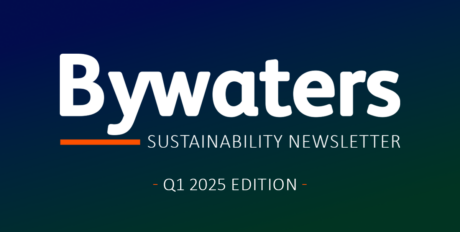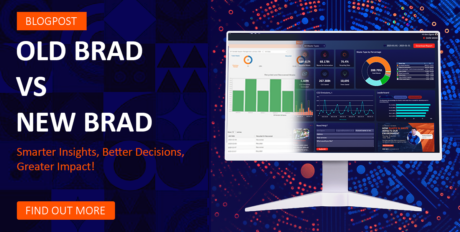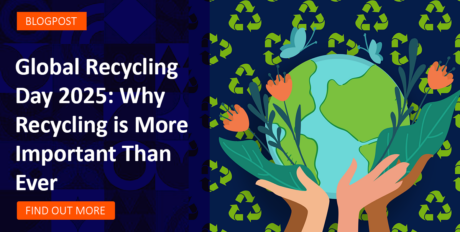Contact us today for your Free Quote
With the UK consistently ranking among the top producers of electronic waste, alongside increasing pressure to meet recycling and sustainability targets, WEEE (Waste from Electrical and Electronic Equipment) has become a growing concern for both the public and businesses.
In 2023 alone, the UK generated over 473,000 tonnes of WEEE, and this year, the target has been raised by 2% to 482,336 tonnes. This reflects the growing need for businesses to adopt more responsible WEEE disposal practices.
In response to these challenges, the UK government has introduced comprehensive legislation to manage WEEE. Now, more than ever, it is vital for businesses to stay informed about how to responsibly manage electronic waste and comply with these regulations.
This article will cover key points regarding WEEE regulation for businesses, practical advice on disposal, and guidance on finding the right WEEE recycler.
What is WEEE Waste?
Let’s start with the basics: What is WEEE? Waste Electrical and Electronic Equipment (WEEE) refers to any electrical or electronic device that is no longer in use and needs to be disposed of. This can include everything from household appliances to business IT equipment, as long as the item operates with a battery or plug.
Because electronic devices vary widely, they need to be sorted into specific categories for proper recycling and disposal. The classification of WEEE helps recycling facilities manage different types of waste efficiently, as some items contain hazardous substances requiring special treatment.
The UK government typically uses the following categories for compliance reporting and recycling purposes:
- Large household appliances
- Small household appliances
- IT and telecommunications equipment
- Consumer equipment
- Lighting equipment
- Electrical and electronic tools (excluding large-scale industrial tools)
- Toys, leisure, and sports equipment
- Medical devices (excluding implanted and infected products)
- Monitoring and control equipment
- Automatic dispensers
- Display screens/appliances
- Cooling appliances
- Gas discharge lamps and LED light sources
- PV/Solar Panels
As technology continues to evolve, it’s important to regularly review these categories to ensure your business is properly categorizing all types of WEEE.
UK WEEE Regulations
The Waste Electrical and Electronics Equipment (WEEE) Regulations 2013 is the key legislation for regulating WEEE. In summary, businesses are generally required to segregate their WEEE from other waste, store them safely and securely, dispose them with a qualified waste management company, and keep records of them.
The legislature states that businesses have a few options for disposing WEEE waste, which include:
- Returning it to its original retailer.
- Taking it to a recycling centre.
- Arranging a collection from a reliable waste management company.
There are ongoing 2024 consultations aimed at updating these regulations to encourage more WEEE reuse and improve collections from households and businesses.
Businesses must:
- Segregate WEEE from other waste.
- Use qualified waste management companies for disposal.
- Keep records of all WEEE handed over.
Basically, businesses need to recycle their electronics! We can’t just simply throw them in the bin. Some companies also have other obligations to follow, these can include.
- Producers who manufacture and sell electronics under their own brand.
- Producers that buy and rebrand electronics and sell them again to the British market.
- Producers that import electronics for commercial purposes.
- Producers who are based abroad but still sell electricals in the UK via distance selling (e.g. online, mail order, phone…).
- Distributors/Retailers that supply electricals to the UK market, including by distance selling.
Responsibilities of Producers
Responsibilities between the businesses may vary, such as producers needing to register as such every year. The way they do that depends on the amount of electrical products they place in the UK market; smaller producers can just directly register with an environmental regulator, while producers of over 5 tonnes of EEE need to join a producer compliance scheme. Furthermore, the conditions to these terms may vary.
Responsibilities of Distributors
Obligations and schemes vary for distributors as well, depending on the size of their operations and sales area. To put it broadly, most distributors need to offer customers free takeback schemes on WEEE (including like-for-like products), keep a track record of everything for at least four years, and provide customers with information on what to do with their WEEE.
Business WEEE Disposal – Some Practical Advice
There are also some practicalities to keep in mind when you’re disposing this stuff. This section will cover a few helpful things to keep in mind…
Recycling Hazardous WEEE
Remember that list of WEEE categories we laid out earlier? It’s not there just for fun. It’s important to note that some of them get treated and processed differently from other WEEE at recycling facilities.
Not all WEEE is created equal – certain items, such as fridges and monitors, contain hazardous substances like persistent organic pollutants (POPs) and must be treated as hazardous waste. These items often require special treatment at waste management facilities. In 2024, businesses are advised to partner with certified WEEE recyclers that can manage both hazardous and non-hazardous waste in a single, compliant process.
If your business is unsure whether certain WEEE items are hazardous, it’s best to consult with a certified waste management partner. A company like Bywaters, which offers a wide range of services, can ensure that all of your electronic waste – whether hazardous or non-hazardous—is managed in compliance with UK regulations.
Your Data and GDPR
With the rise of GDPR, it’s more important than ever for businesses to securely dispose of WEEE containing sensitive data. Proper data destruction before disposal is a key requirement, and many businesses now use confidential waste services to ensure compliance.
If your WEEE contains sensitive business or customer data, additional steps must be taken before disposal. The UK WEEE Regulations 2013 require businesses to delete any personal data from electronic devices before they are recycled to prevent data breaches.
There’s more to it as well, businesses may also be subject to GDPR and Data Protection laws when dealing with client or consumer information, meaning that they need to have a proper system in place to dispose of their data safely.
These issues can be sorted by booking a specialised confidential waste service, ensuring secure data destruction.
WEEE Recycling for Businesses
Keeping accurate records of how your WEEE was stored, treated, and handed over to an authorised waste management company is essential for demonstrating that your business is adhering to regulations. By partnering with a compliant waste management provider like Bywaters, your business can ensure the proper handling and recycling of its electronic waste, minimizing its environmental impact.
Achieving Net Zero In line with the UK’s Net Zero by 2050 initiative, businesses have an added incentive to reduce their electronic waste footprint. The government has allocated £5 billion to help businesses reach their Net Zero targets, and partnering with a waste management company that can offset your carbon emissions is key to securing further funding.
When compared to traditional waste management companies, partnering with Bywaters will help your business’s environmental track record. Our dedicated team of Sustainability consultants can help your facilities to improve their recycling targets. Moreover, our operations, which include a solar-fitted facility and an increasingly electrified fleet can help you reduce your scope 3 emissions, helping your entire value chain to become environmentally friendly.
Conclusion
In 2024, managing electronic waste isn’t just about compliance—it’s an opportunity for businesses to enhance their environmental credentials and contribute to the UK’s ambitious sustainability goals. By working with a reliable partner like Bywaters, your business can simplify the WEEE recycling process, meet regulatory requirements, and make progress toward Net Zero.
Contact us today to find out how we can help you reach your sustainability goals.
More posts:
Sustainability News Q1 2025
From global shifts in sustainability policies to local waste management crises and innovative digital audits, explore the complex challenges and solutions shaping our environment today. Discover how economic pressures, labor disputes, and technological advancements are impacting sustainability and waste management practices worldwide.
Read moreOld BRAD vs New BRAD: Smarter Insights, Better Decisions, Greater Impact
We are proud to introduce new and improved BRAD – our upgraded Reporting Analytics Dashboard built with the customers’ feedback at its core. Smarter, faster, and easier to use, the new BRAD offers smarter insights, better decisions, greater impact. Discover the all-new BRAD – make a step toward your sustainable goals!
Read moreGlobal Recycling Day 2025: Why Recycling is More Important Than Ever
On 18th March, we celebrate Global Recycling Day, highlighting the importance of reducing waste, conserving resources, and cutting carbon emissions. With over 2 billion tonnes of waste generated annually, recycling is more crucial than ever. Discover how Bywaters is leading the way in sustainability and how you can make a difference.
Read more




